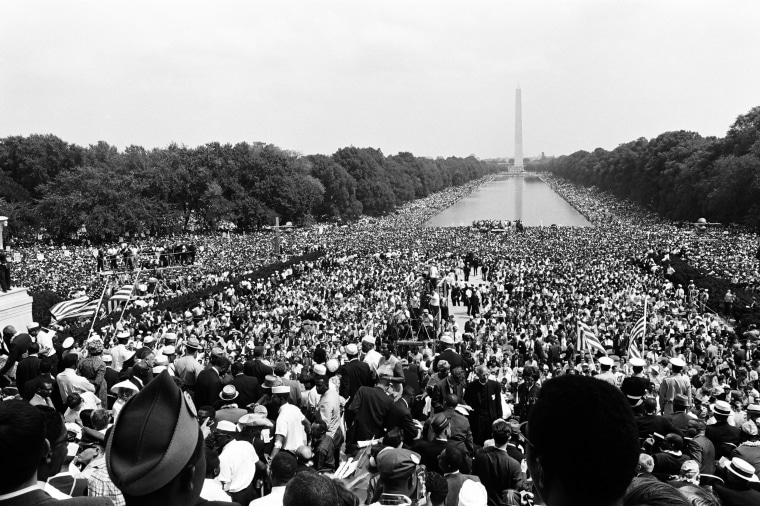Earlier this week, the U.S. House of Representatives passed the John Lewis Voting Rights Act, also known as H.R. 4. This bill would restore significant provisions of the Voting Rights Act which were gutted by the Supreme Court in 2013. While this is welcomed news, no Republicans in the House voted in favor of H.R. 4, and it faces an uphill battle in the Senate.
The party’s refusal to support the bill named for John Lewis comes on the heels of Republican obstruction of the For The People Act.
The party’s refusal to support the bill named for John Lewis comes on the heels of Republican obstruction of the For The People Act, which aims to protect early voting and mail-in voting, end the gerrymandering of congressional districts and more. At the same time, state GOP legislators across the country have proposed hundreds of bills that threaten the fundamental right to vote. It is why this weekend, we “March On for Voting Rights.”
On Aug. 28, my organization, National Action Network, and Martin Luther King III will be joined by civil rights advocates, elected officials, clergy, activists, labor leaders and concerned citizens as we demonstrate in the nation’s capital to demand protections for voting rights. The intergenerational and multicultural assembly will march past the White House on Black Lives Matter Plaza and culminate with a rally on the National Mall. There will be simultaneous sister marches in cities that include Atlanta, Houston and Phoenix.
Coinciding with the anniversary of the 1963 March On Washington, which featured the Rev. Dr. Martin Luther King Jr. as speaker, our demonstration and rally will continue Dr. King’s fight for voting rights, justice and equality. It was through the intense sacrifice and work of people such as Dr. King, and other foot soldiers such as John Lewis and Hosea Williams that Congress eventually took action and passed bills such as the Voting Rights Act which were then signed into law.
Nobody got up one morning and said it’s time to give people the right to vote.
Nobody got up one morning and said it’s time to give people the right to vote. The endless determination of many activists and organizers brought the urgency — “the fierce urgency of now,” as King put it — to the forefront. We will be doing the same this weekend.
A record number of Americans participated in the 2020 election and shifted the dangerous course we were on as a country. It is precisely because of this level of engagement that so many are now afraid: afraid of our collective power and our collective will. That is why they have attempted to enact nearly 400 bills to suppress the right to vote. It is no coincidence that the primary targets of these voter suppression tactics are people of color and the poor. In other words, the already disenfranchised would be further disenfranchised.
We are at a crossroads, and the direction we take will shape this nation for generations to come. Just as those before us organized, protested, galvanized and maintained pressure on elected leaders to ensure our civil rights, we must do the same. It is inconceivable that in 2021, legislation is being crafted that directly targets communities who worked so hard to exercise their right to vote. It is the most blatant attack against us, and we will not sit idly by and allow this to happen. Too many gave their lives for our civil rights, and we will not turn back the clock now.
Last year, hundreds of thousands joined us in Washington as we marched for police accountability and reform. This weekend, we will have the same vigor, and the same determination as we demand federal protections for our right to vote. It’s not enough to hear elected officials say that they want our vote; they must actively work to protect it and ensure access to the ballot box. Just as civil rights leaders maintained pressure in the past, we intend to do the same. The Black vote delivered in the 2020 election. Now it’s time for our representatives to deliver for us.

